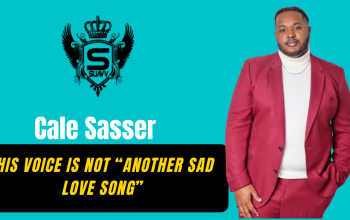Music Executive, artist manager, entrepreneur, activist, lecturer, author, and cancer survivor, Mathew Knowles brought the world multiplatinum-selling girl group Destiny’s Child, singer-songwriter Solange, and multi-hyphenate megastar Beyonce. He’s worked with music legends, Chaka Kahn, the O’Jays, Earth, Wind, & Fire, and sold more than 450 million albums, worldwide.
A devoted academic who earned his MBA in Strategic Planning and Organizational Culture and his Ph.D. in Business Administration, Knowles currently mentors and teaches emerging entrepreneurs and artists with courses like his most recent, The Music Industry in the Digital Age, through Point Blank Music School where he holds a professorship; Knowles additionally holds professorships at the University of Houston, Prairie View A&M University, and The Art Institute.
Most urgently, Mathew Knowles is on a mission to help get more Americans in underserved communities vaccinated against Covid-19 alongside the National Minority Health Association’s Flex For Checks program, which can be learned about at thenmha.org and flexforchecks.com.
Allison Kugel: What is the National Minority Health Association, and how did you get involved with their Flex for Checks initiative?
Mathew Knowles: The National Minority Health Association is working with brown and Black communities on various health initiatives. For example, when we look at Black men and we look at the percentage of Black men in America, we lead in mortalities in every category, Allison, except for breast cancer and suicide. Black women lead in mortality rates for breast cancer. Why is that? Because of a lack of awareness in our communities. It’s about the lack of early detection. The National Minority Health Association’s specific program, Flex For Checks, is about increasing awareness about getting vaccinated [against COVID-19]. You register, you get a shot, and once you’ve proven that you’ve gotten the vaccination, you then receive $50.
Allison Kugel: That is once you’ve gotten your complete vaccination, meaning two shots, with the exception of the Johnson & Johnson vaccine, which is a single shot?
Mathew Knowles: Every time you get a shot, regardless of if it’s one, two, or the booster, you will receive $50.
Allison Kugel: At this point in time, you can pretty much walk into any CVS, Walgreens, Rite Aid, any clinic, or vaccination site, and get your COVID-19 vaccine. You don’t have to pay for the vaccine, it’s free for all Americans and readily available. So, when you say “lack of access” or “underserved communities,” is it more about getting people the correct information regarding the vaccine?
Mathew Knowles: It’s both. We are almost there with 70% of the U.S. [vaccinated], but there is still that 30% [that is not vaccinated]. So, what do we have to do to convince and incentivize that 30%, of which there is a high minority rate? We are giving a financial incentive. I know it sounds sort of absurd that I have to give you a financial incentive to save your life, but if that is what it takes, then that is what the National Minority Health Association is willing to do, with a grant they have received. It’s to incentivize people to go and get vaccinated.
Allison Kugel: Is there, in your opinion, skepticism of government and skepticism of the medical establishment, among many people of color?
Mathew Knowles: There is, and I happen to have this sheet that I pulled up which talks about the myths. One of the myths is, “the vaccine hasn’t been tested on people like me,” meaning people of color. The truth is the clinical trials for all three vaccines have taken all kinds of diversity into consideration. Pfizer: 30% people of color. Moderna: 37%. Johnson & Johnson: 35%. So that myth is busted. And there is a myth about the side effects of getting the COVID-19 vaccine. The truth is, while there are some mild side effects, and I got the Moderna vaccine as well as the booster and did have soreness in my arm for two days, but the risk/reward of me having a sore arm versus having a ventilator down my throat. Let me weigh that out.
Allison Kugel: I think some aspect of vaccine hesitancy is, simply, fear of the unknown. People might be thinking, “What kind of side effects will I get?”
Mathew Knowles: I have a cup of tea in front of me right now. I’m going to drink it. I have no idea what all of the ingredients are in this tea. I have no idea if this cup will give me any side effects. That is true for so much of the food we eat, medications we take, and so forth. We have to put this into the proper perspective. We never really truly know every ingredient we put into our bodies. But we have to have trust in the science and in the research. I haven’t heard anybody say what I’m about to say, but I think a lot of people haven’t gotten the vaccine because of a fear of needles. There are a lot of people that are traumatized by a needle, and nobody is talking about that.
Allison Kugel: You might be right. It’s a common phobia. I actually made the woman who gave me the vaccine hold my hand, because I was such a baby (laugh).
Mathew Knowles: Well, I mean, it’s normal, but no one is really saying that. I really truly believe that a lot of this is just a phobia of getting a needle in the arm.
Allison Kugel: Which, by the way, you really don’t even feel. It’s just two seconds. You blink and it’s over.
Mathew Knowles: I didn’t even know. The doctor was talking to me and the next thing I knew I’m asking, “When are you going to give me the shot?” He said, “I already did.” I said, “Wait, what (laugh)?!”
Allison Kugel: Sadly, we just recently lost Colin Powell to complications from COVID-19. Something came out in the news that was confusing to many people. His loved ones stated the following, “We want people to know that he was completely vaccinated.” That statement then gave rise to more skepticism of, “See? He was vaccinated and he died from COVID complications.” But it is important to note that he had been battling a cancer of the blood, which significantly compromised his immune system, and it also made the vaccine less effective.




